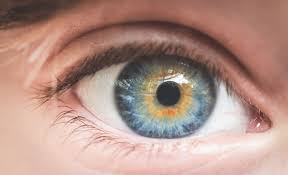10 Foods That May Not Be Good for Your Eye Health
- Advertisement -
Your eyes are among the most sensitive organs in your body, and they require specific nutrients to function optimally. While some foods promote eye health, others can have the opposite effect, potentially increasing the risk of vision problems. Poor dietary choices can lead to conditions like dry eyes, cataracts, and macular degeneration over time.
Here’s a list of 10 foods you should consume in moderation or avoid altogether to protect your eyesight and maintain overall eye health.
1. Sugary Foods and Beverages
Excessive sugar consumption can lead to spikes in blood sugar levels, which may damage the blood vessels in your retina over time. This condition, known as diabetic retinopathy, is a leading cause of blindness in adults.
- Advertisement -
- Examples: Candies, sodas, cakes, and sweetened beverages.
- Tip: Opt for natural sweeteners like honey or reduce your sugar intake by choosing unsweetened options.
2. Processed and Fast Foods
Highly processed foods often contain unhealthy fats, excessive sodium, and artificial additives. These can increase inflammation in the body, which may contribute to retinal damage and dry eye syndrome.
- Examples: Fried chicken, pizza, burgers, and instant noodles.
- Tip: Prepare meals at home using fresh ingredients to limit processed food consumption.
3. Trans Fats
Trans fats, commonly found in margarine, baked goods, and packaged snacks, can increase bad cholesterol levels. High cholesterol may lead to blocked blood vessels in the eyes, which can impair vision and increase the risk of macular degeneration.
- Examples: Packaged cookies, crackers, and microwave popcorn.
- Tip: Check food labels and avoid products with “partially hydrogenated oils.”
4. High-Sodium Foods
Excessive salt intake can contribute to high blood pressure, which in turn may damage the blood vessels in your eyes. This condition, known as hypertensive retinopathy, can reduce your ability to see clearly.
- Advertisement -
- Examples: Canned soups, chips, and processed meats like sausages.
- Tip: Choose low-sodium options and season your food with herbs and spices instead of salt.
5. Fried Foods
Fried foods are typically high in unhealthy fats, which can increase inflammation and oxidative stress in the body. These factors may accelerate the development of cataracts and other age-related eye conditions.
- Examples: French fries, fried chicken, and fried fish.
- Tip: Use healthier cooking methods like baking, grilling, or steaming.
6. Alcohol
Excessive alcohol consumption can lead to vitamin A deficiency, dehydration, and damage to the optic nerve. Over time, this can cause blurry vision, double vision, or even permanent vision loss.
- Examples: Beer, wine, and spirits.
- Tip: Limit alcohol intake to recommended levels (one drink per day for women and two for men) or avoid it altogether.
7. Foods High in Artificial Sweeteners
Artificial sweeteners like aspartame have been linked to neurological symptoms in some individuals, including vision changes and eye discomfort. While evidence is still evolving, it’s best to consume these in moderation.
- Advertisement -
- Examples: Diet sodas, sugar-free candies, and low-calorie desserts.
- Tip: Opt for natural sweeteners like stevia or stick to water and herbal teas.
8. Red Meat
While red meat is a good source of protein, consuming it in excess can lead to high cholesterol levels, which may increase the risk of macular degeneration. Saturated fats in red meat can also contribute to inflammation, negatively affecting eye health.
- Examples: Beef, pork, and lamb.
- Tip: Balance your diet with lean proteins like poultry, fish, and plant-based options.
9. Spicy Foods
Spicy foods can trigger dry eyes in some individuals, especially if consumed frequently. Capsaicin, the compound that gives chili peppers their heat, may irritate the delicate tissues in and around the eyes.
- Examples: Hot sauces, chili peppers, and spicy curries.
- Tip: If you experience dry eyes, consider reducing your intake of spicy foods and drinking more water.
10. Energy Drinks
Energy drinks are often packed with caffeine and sugar, which can lead to dehydration and spikes in blood sugar levels. Dehydration can cause dry eyes, while high sugar levels may contribute to diabetic retinopathy.
- Examples: Energy drinks like Red Bull, Monster, and similar products.
- Tip: Opt for water, herbal teas, or natural fruit juices for hydration and energy.
How These Foods Impact Eye Health
- Inflammation: Many of these foods increase inflammation, which can accelerate conditions like macular degeneration and cataracts.
- Blood Vessel Damage: High cholesterol and blood pressure caused by unhealthy diets can impair blood flow to the retina.
- Oxidative Stress: Processed and fried foods lack antioxidants, making the eyes more vulnerable to oxidative damage.
- Dehydration: Alcohol and caffeinated drinks contribute to dry eyes by reducing moisture levels in the body.
3 Warning Signs of Diabetes You Must Never Overlook
Tips for Protecting Your Eyes Through Diet
- Choose Eye-Friendly Foods: Incorporate leafy greens, fatty fish, nuts, and colorful fruits into your meals for essential nutrients.
- Stay Hydrated: Drink plenty of water throughout the day to prevent dry eyes.
- Limit Sugary and Processed Foods: Opt for whole, unprocessed options whenever possible.
- Monitor Your Sodium Intake: Check food labels and avoid overly salty snacks and canned goods.
- Balance Your Diet: Include a variety of food groups to ensure your eyes get all the nutrients they need.
Conclusion
Your diet has a direct impact on your eye health, and avoiding or limiting foods that can harm your vision is essential for maintaining good eyesight. By cutting back on sugary, processed, and high-sodium foods, and replacing them with nutrient-rich options, you can significantly reduce the risk of developing eye problems.
- Advertisement -
Remember, a healthy diet isn’t just good for your eyes—it benefits your entire body. Pair smart food choices with regular eye check-ups and good lifestyle habits for optimal vision health. Your eyes will thank you!
- Advertisement -


